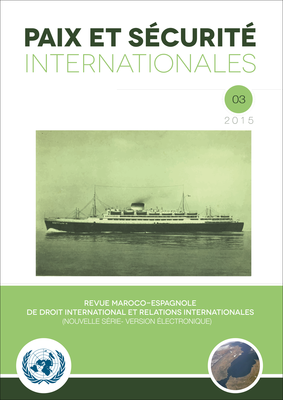Developing Effective Partnerships in Peacekeeping Operations between the UN and Regional Organizations. A Recent Report of the UN Secretary General on the transition in Mali and in the Central African Republic
Abstract
Abstract. Developing effective partnerships between the UN and Regional organizations involved in the delivery of Peace-keeping Operations (PKOs) has become a key element to improve the effectiveness, credibility and sustainability of these missions. The recent trend of transferring authority from a regional Organization to a UN PKO represents an interesting tool based on the principles of complementarity and comparative advantages. At the request of the Security Council, the UN Secretary General carried out a lessons-learned exercise on the transition from African Union peace operations to UN PKOs in Mali and in the Central African Republic (CAR). This article provides a critical analysis of this Report and argues that a smooth transition phase from one operation to the other is possible provided that a set of conditions are fulfilled. Moreover, the present contribution highlights that the two cases offer interesting lessons to be learned, which could prove to be essential for the future transition from the African Union Mission in Somalia (AMISOM) to a UN operation.
Keywords: UN, Regional organizations, Peace-keeping, Partnerships.
Downloads
How to Cite
License
Copyright
Es condición para la publicación que el autor o autores ceda(n) a la Revista, en exclusiva, los derechos de reproducción. Paix et Sécurité Internationales es una revista que proporciona un acceso abierto inmediato a su contenido totalmente gratuito para lectores como para los investigadores que pretendan publicar en ella, ya que no se realizan cobros por concepto de envío, procesamiento ni publicación. Los usuarios podrán leer, descargar, copiar, distribuir, imprimir, buscar o enlazar el texto completo de los artículos publicados, o utilizarlos para cualquier otro propósito, dentro de la legalidad vigente. Y podrán hacerlo sin coste alguno, y sin necesitad de solicitar permiso al editor a al autor. Todo ello de acuerdo con la definición de acceso abierto de la Iniciativa Acceso Abierto de Budapest.






